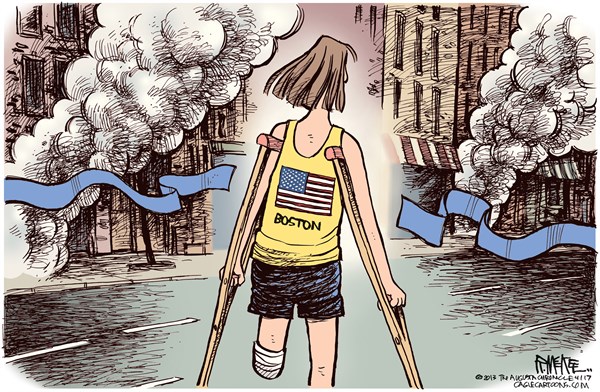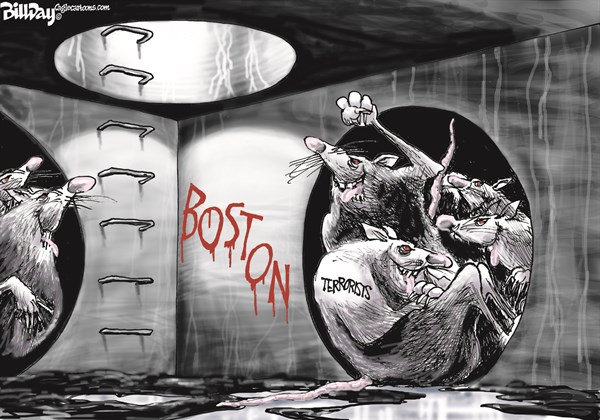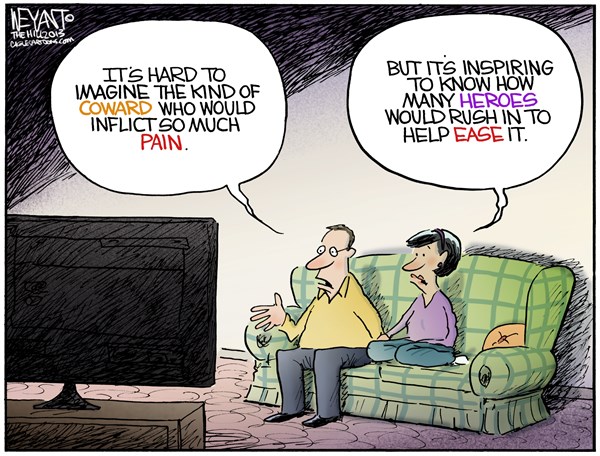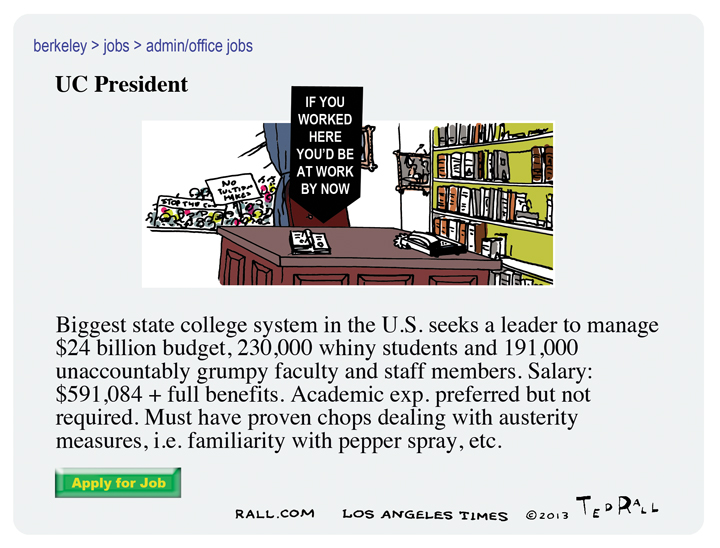I don’t know if I will keep doing this, but the reaction to Friday’s cartoon critique was so interesting and mostly positive but I thought I would keep it up with this latest batch. If you’re just joining the program, you probably already know my own work. But what you don’t know is what I’m reacting against: the so-called mainstream editorial cartoons that run in most major newspapers and on most major media websites, almost always to the exclusion of the good alternative stuff. Most artists get into an artform in order to build upon what came before. That’s also true of alternative artists, since our influences come from other places, but in the marketplace as it exists today, we are mostly defining ourselves by not being like this crap.

This is what I call the phony “I don’t care about politics” genre. After all, it’s by a political cartoonist. Someone who lives and breathes politics. Someone who is paid by a large daily newspaper, one that won’t even pick up my stuff for $20 a week via syndication even though I’m from the state that it’s in, and pretends that all he wants do is wallow in escapist television garbage. Sorry, I’m not buying it.

This cartoon illustrates the problems with the metaphor-based form of editorial cartooning. It’s almost like you need that fancy Enigma code breaking machine from World War II to decipher the thing. And then, assuming that you’re smart enough and caffeinated enough to figure it out, you have to conclude that all that work probably wasn’t worth it.
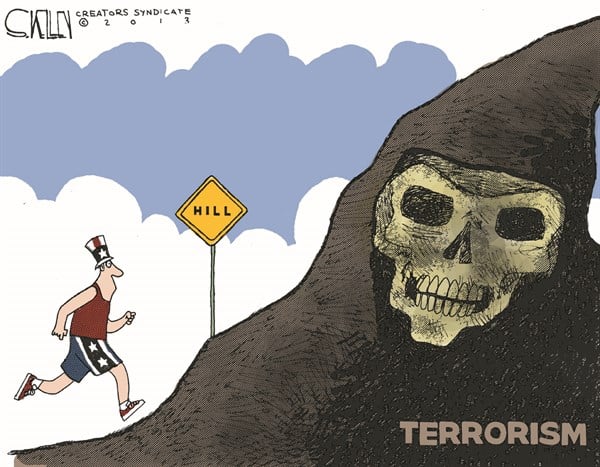
I admit it, this one kind of freaked me out. It’s another metaphor. At first, I thought to myself that since Uncle Sam was involved, he was going to have to climb Capitol Hill and this had something to do with the failed vote on the gun background check bill. Then I realized what it really was, that terrorism would be a hard hill to climb. Again, you can really see how these metaphor cartoons are hard to pull off. I mean, if you follow the analogy, this means that Uncle Sam wants to become more of a terrorist? Or that terrorism is something that were just going to have to get over? I don’t know. Makes my head hurt. And I really don’t understand the whole enormous buried skull.
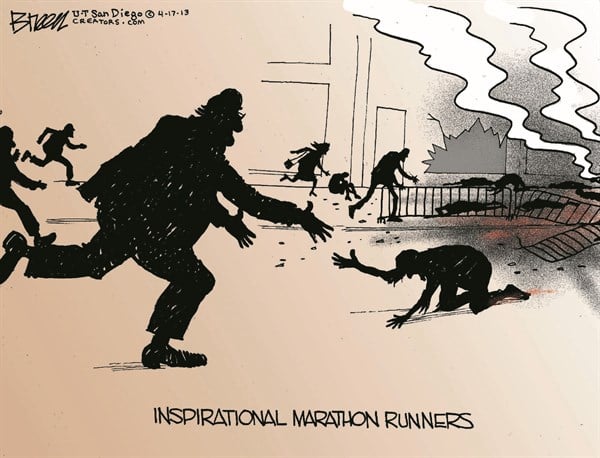 I am guessing that this was probably an attempt to be emotional, but all it looks like to me is like a 1%er banker is running to the rescue. Did this happen? How did I miss this story? Very strange. Congratulations, by the way, to the cartoonist for winning the 2013 National Headliner Award. He already previously won two Pulitzer Prizes.
I am guessing that this was probably an attempt to be emotional, but all it looks like to me is like a 1%er banker is running to the rescue. Did this happen? How did I miss this story? Very strange. Congratulations, by the way, to the cartoonist for winning the 2013 National Headliner Award. He already previously won two Pulitzer Prizes.
No alternative cartoonist – Tom Tomorrow, Matt Bors, Jen Sorensen, Stephanie McMillan, or myself – has ever won the National Headliner Award.

Another two-time Pulitzer winner weighs in with… What? I have no idea. Yeah, I recognize the national anthem. What exactly this has to do with the Boston bombing… What? Editors will no doubt love this.
Bear in mind, I intentionally chose cartoons by people who make a lot more money than I do and have won a lot more awards than I have and are much more successful than the best cartoonists in the business. According to the prize committees and the HR departments of America’s newspapers, this is what I should be doing instead of what I am doing. This is what gets rewarded.




